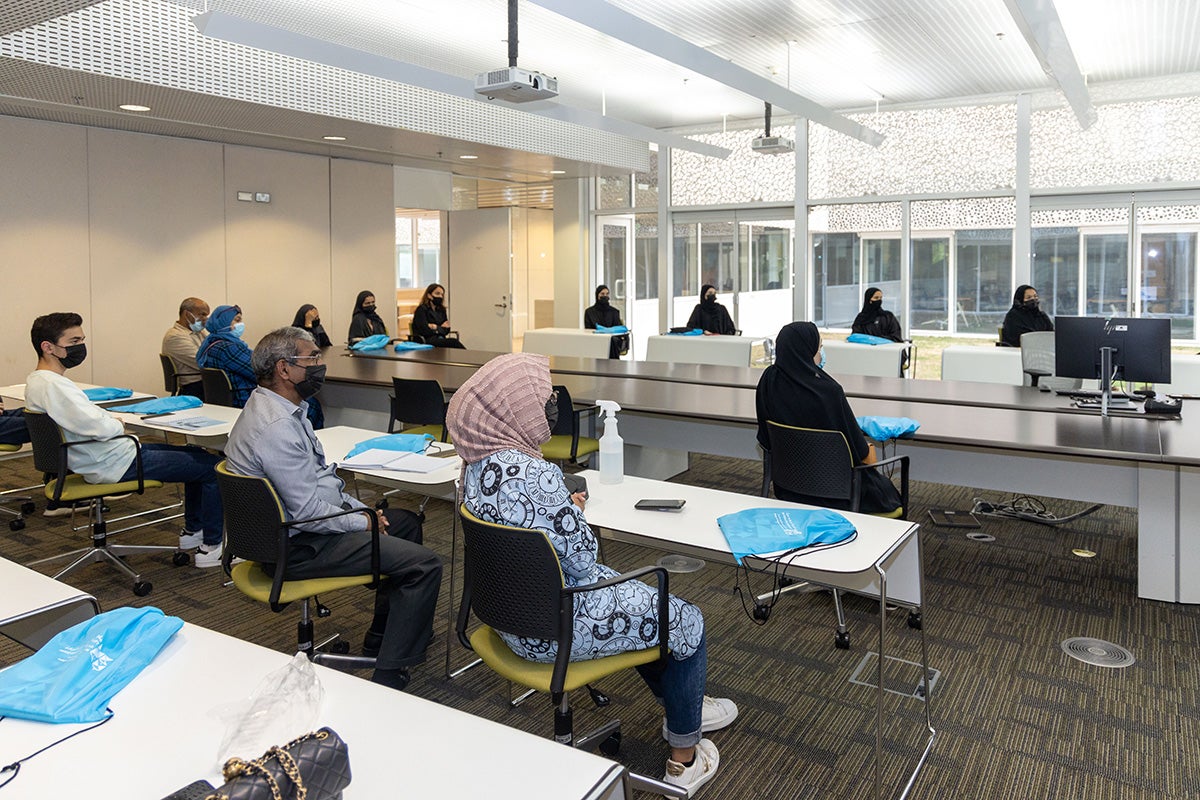
Technology and crime: A never-ending cat-and-mouse game
By Professor Roberto Di Pietro*

Is technology a good or bad thing? It depends on who you ask, as it is more about the way technology is used. Afterall, technology can be used by criminals but can also be used to catch criminals, creating a fascinating cat-and-mouse game.
Countless ways technology can be used for evil
The first spear was used to improve hunting and to defend from attacking beasts. However, it was also soon used against other humans; nuclear power is used to produce energy, but it was also used to annihilate whole cities. Looking at today’s news, we’ve learned that cryptocurrencies could be (and are) used as the preferred form of payments of ransomware since they provide an anonymous, reliable, and fast payment method for cybercriminals.
Similarly, secure phones are providing criminal rings with a fast and easy way to coordinate their rogue activities. The list could go on. Ultimately, all technological advancements can be used for good or evil. Indeed, technology is not inherently bad or good, it is its usage that makes the difference. After all, spears served well in preventing the extinction of humankind, nuclear power is used to generate energy, cryptocurrency is a promise to democratize finance, and mobile phones are the device of choice of billions of people daily (you too are probably reading this piece on a mobile).
However, what is new with respect to the past (recent and distant) is that technology is nowadays much more widespread, pervasive, and easier to manipulate than it was some time ago. Indeed, not all of us are experts in nuclear material, or willing and capable of effectively throwing a spear at someone else. But each of us is surrounded by, and uses, technology, with a sizeable part of users also capable of modifying that technology to better serve their purposes (think of computer scientists, programmers, coding kids – technology democratization).
This huge reservoir of people that are capable of using technology in a way that is different from what it was devised for, is not made of just ethical hackers: there can be black hats as well (that is, technology experts supporting evil usages of such technology). In technical terms, the attack vector and the security perimeter have dramatically expanded, leading to a scenario where technology can be easily exploited for rogue purposes by large cohorts of people that can attack some of the many assets that are nowadays vulnerable – the cybersecurity domain provides the best example for the depicted scenario.
Fast-paced innovation and unprecedented threats
What is more, is that technology developments will not stop. On the contrary, we are experiencing an exponentially fast pace in technology innovation, that resolves in less time between technology innovations cycles that, while improving our way of living, also pave the way for novel, unprecedented threats to materialize. For instance, the advent of quantum computers will make the majority of current encryption and digital signature methods useless and what was encrypted and signed in the past, exposed.
The tension between legitimate and illegitimate usages of technology is also heating up. For instance, there are discussions in the US and the EU about the need for the provider of ICT services to grant the decryption keys of future novel secure applications to law enforcement agencies should the need arise –a debatable measure.
However, technology is the very weapon we need to fight crime. Think of the use of Terahertz technology to discover the smuggling of drugs and explosives – the very same technology Qatar has successfully employed. Or the infiltration of mobile phone crime rings by law enforcement operators via high tech, ethical hacking (as it was the case for the EncroChat operation). And even if crime has shown the capability to infiltrate any sector of society, such as sports, where money can be laundered over digital networks and matches can be rigged and coordinated via chats, technology can help spot the anomalies of money transfer, and data science can spot anomalies in matches, and can therefore thwart such a crime – a recent United Nations-sponsored event, participated by the International Centre for Sport Security (ICSS) Qatar and the College of Science and Engineering (CSE) at Hamad Bin Khalifa University (HBKU) discussed the cited topic. In the end, the very same technology that is used by criminals is also used to fight crime itself.
Don’t get left behind
In the above-depicted cybersecurity cat-and-mouse game, the loser is the party that does not update its tools, does not plan, and does not evolve.
In particular, cybersecurity can help a country such as Qatar over two strategic dimensions: to better prevent/detect/react to the criminal usage of technology, as well as to advance robustly toward a knowledge-based economy and reinforce the country’s presence in the segment of high value-added services and products to fight crime.
In this context, a safe bet is to invest in education, for both governments and private citizens. On the one hand, only an educated workforce would be able to conceptualize/design/implement advanced cybersecurity tools and frameworks, as well as strategically frame the fight against crime. On the other hand, the same well-educated workforce will be able to spur innovation, create start-ups, produce novel high-skill products, and diversify the economy.
In this context, Qatar enjoys a head start, thanks to its huge investment in education over the last 20 years. In particular, at HBKU - part of Qatar Foundation – where we have been educating future generations.
CSE engages and leads in research disciplines of national and global importance. The college’s speciality divisions are firmly committed to excellence in graduate teaching and training of highly qualified students with entrepreneurial capacity.
For instance, the MS in Cybersecurity offered by CSE touches on the foundations of cryptocurrencies, while the PhD in Computer Science and Engineering, offering several majors (including cybersecurity), prepares future high-level decision-makers, researchers, and entrepreneurs in the ICT domain – the leaders who will be driving the digitalization of the economy and leading the techno-fight against crime.
Related News

PhD Student at HBKU’s College of Science and Engineering Awarded at Kuwait Invention Competition
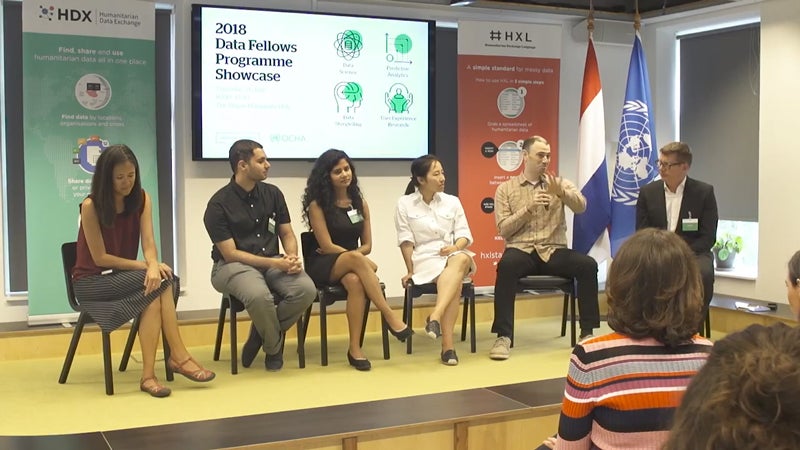
HBKU’s College of Science and Engineering Graduate Advances Education Data as a UN Fellow
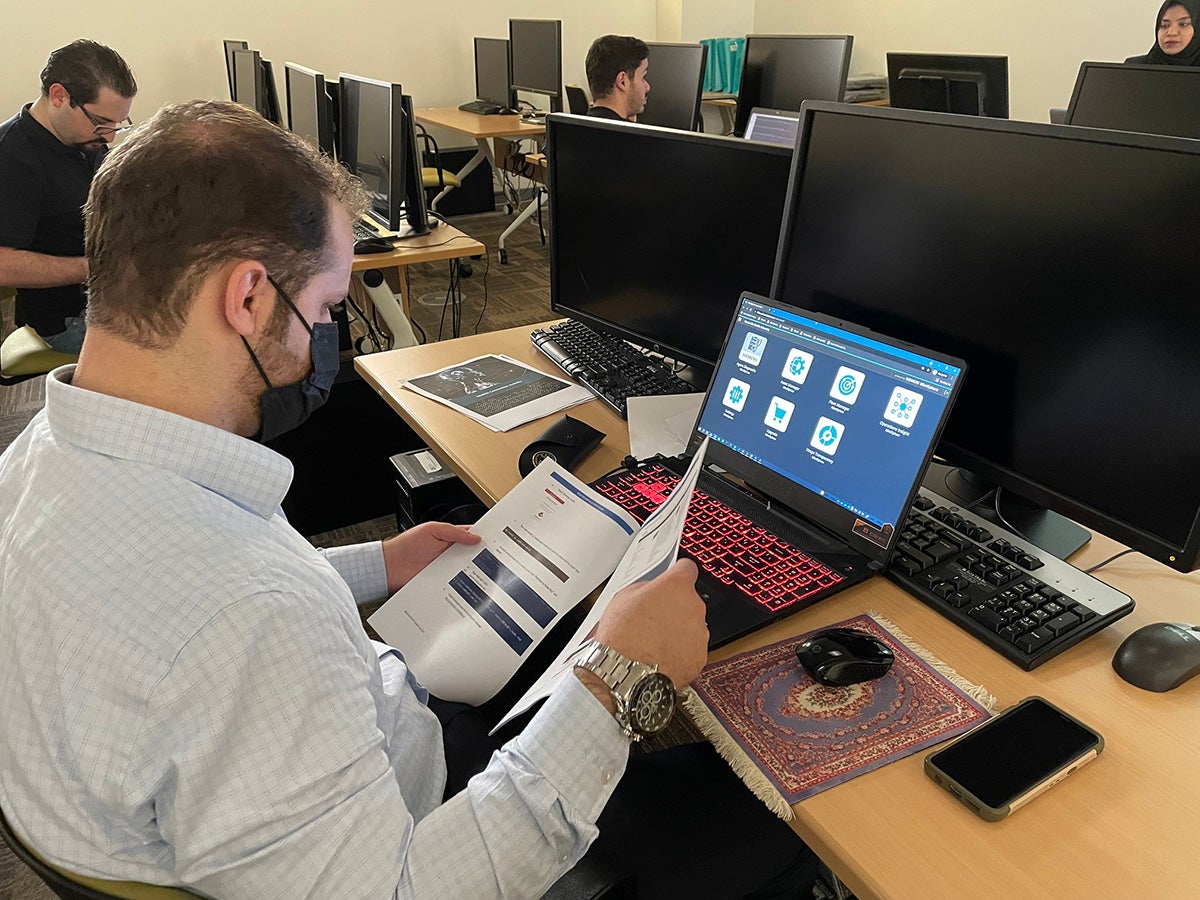
College of Science and Engineering Teams Up With Siemens Qatar to Deliver Digital Skills Training for Students

College of Science and Engineering Faculty Chart a Course for Ethical Software Engineering at International Workshop

HBKU’s College of Science and Engineering Collaborates with MoTC to Deliver Webinar Series

Dr. Saif Al-Kuwari Assistant Professor, College of Science and Engineering, Hamad Bin Khalifa University
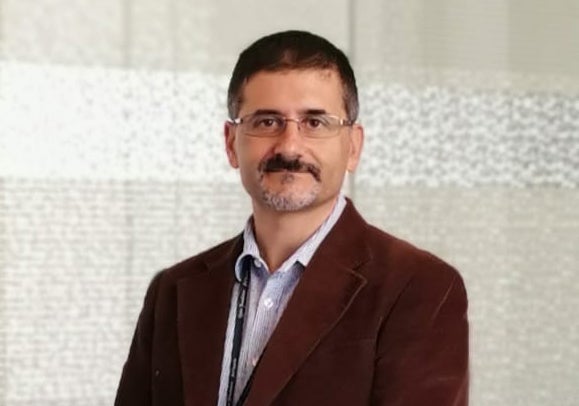
Not All Hackers Are Criminals, and Some of the Good Guys Can Earn a Million Dollars

College of Science and Engineering Faculty Member Participates in Kuwait Digital Health Conference

College of Science and Engineering Faculty Contributes to Disability and Development Conference
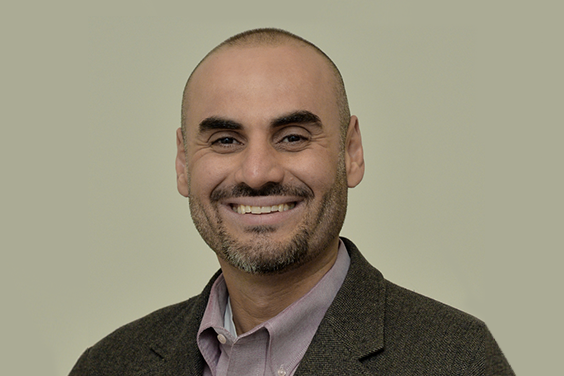
The Challenges of Data Analytics in Healthcare: Transpired Promises or an Uncertain Future?

College of Science and Engineering Students Attend Digital Accessibility Workshop at Mada

PhD Student at HBKU’s College of Science and Engineering Awarded at Kuwait Invention Competition

HBKU’s College of Science and Engineering Graduate Advances Education Data as a UN Fellow

College of Science and Engineering Teams Up With Siemens Qatar to Deliver Digital Skills Training for Students

College of Science and Engineering Faculty Chart a Course for Ethical Software Engineering at International Workshop

HBKU’s College of Science and Engineering Collaborates with MoTC to Deliver Webinar Series

Dr. Saif Al-Kuwari Assistant Professor, College of Science and Engineering, Hamad Bin Khalifa University

Not All Hackers Are Criminals, and Some of the Good Guys Can Earn a Million Dollars

College of Science and Engineering Faculty Member Participates in Kuwait Digital Health Conference

College of Science and Engineering Faculty Contributes to Disability and Development Conference

The Challenges of Data Analytics in Healthcare: Transpired Promises or an Uncertain Future?

College of Science and Engineering Students Attend Digital Accessibility Workshop at Mada

PhD Student at HBKU’s College of Science and Engineering Awarded at Kuwait Invention Competition

HBKU’s College of Science and Engineering Graduate Advances Education Data as a UN Fellow

College of Science and Engineering Teams Up With Siemens Qatar to Deliver Digital Skills Training for Students

College of Science and Engineering Faculty Chart a Course for Ethical Software Engineering at International Workshop

HBKU’s College of Science and Engineering Collaborates with MoTC to Deliver Webinar Series

Dr. Saif Al-Kuwari Assistant Professor, College of Science and Engineering, Hamad Bin Khalifa University

Not All Hackers Are Criminals, and Some of the Good Guys Can Earn a Million Dollars

College of Science and Engineering Faculty Member Participates in Kuwait Digital Health Conference

College of Science and Engineering Faculty Contributes to Disability and Development Conference

The Challenges of Data Analytics in Healthcare: Transpired Promises or an Uncertain Future?

College of Science and Engineering Students Attend Digital Accessibility Workshop at Mada

PhD Student at HBKU’s College of Science and Engineering Awarded at Kuwait Invention Competition

HBKU’s College of Science and Engineering Graduate Advances Education Data as a UN Fellow

College of Science and Engineering Teams Up With Siemens Qatar to Deliver Digital Skills Training for Students

College of Science and Engineering Faculty Chart a Course for Ethical Software Engineering at International Workshop

HBKU’s College of Science and Engineering Collaborates with MoTC to Deliver Webinar Series

Dr. Saif Al-Kuwari Assistant Professor, College of Science and Engineering, Hamad Bin Khalifa University

Not All Hackers Are Criminals, and Some of the Good Guys Can Earn a Million Dollars

College of Science and Engineering Faculty Member Participates in Kuwait Digital Health Conference

College of Science and Engineering Faculty Contributes to Disability and Development Conference

The Challenges of Data Analytics in Healthcare: Transpired Promises or an Uncertain Future?

College of Science and Engineering Students Attend Digital Accessibility Workshop at Mada

PhD Student at HBKU’s College of Science and Engineering Awarded at Kuwait Invention Competition

HBKU’s College of Science and Engineering Graduate Advances Education Data as a UN Fellow

College of Science and Engineering Teams Up With Siemens Qatar to Deliver Digital Skills Training for Students

College of Science and Engineering Faculty Chart a Course for Ethical Software Engineering at International Workshop

HBKU’s College of Science and Engineering Collaborates with MoTC to Deliver Webinar Series

Dr. Saif Al-Kuwari Assistant Professor, College of Science and Engineering, Hamad Bin Khalifa University

Not All Hackers Are Criminals, and Some of the Good Guys Can Earn a Million Dollars

College of Science and Engineering Faculty Member Participates in Kuwait Digital Health Conference

College of Science and Engineering Faculty Contributes to Disability and Development Conference

The Challenges of Data Analytics in Healthcare: Transpired Promises or an Uncertain Future?

College of Science and Engineering Students Attend Digital Accessibility Workshop at Mada

PhD Student at HBKU’s College of Science and Engineering Awarded at Kuwait Invention Competition

HBKU’s College of Science and Engineering Graduate Advances Education Data as a UN Fellow

College of Science and Engineering Teams Up With Siemens Qatar to Deliver Digital Skills Training for Students

College of Science and Engineering Faculty Chart a Course for Ethical Software Engineering at International Workshop

HBKU’s College of Science and Engineering Collaborates with MoTC to Deliver Webinar Series

Dr. Saif Al-Kuwari Assistant Professor, College of Science and Engineering, Hamad Bin Khalifa University

Not All Hackers Are Criminals, and Some of the Good Guys Can Earn a Million Dollars

College of Science and Engineering Faculty Member Participates in Kuwait Digital Health Conference

College of Science and Engineering Faculty Contributes to Disability and Development Conference

The Challenges of Data Analytics in Healthcare: Transpired Promises or an Uncertain Future?

College of Science and Engineering Students Attend Digital Accessibility Workshop at Mada

PhD Student at HBKU’s College of Science and Engineering Awarded at Kuwait Invention Competition

HBKU’s College of Science and Engineering Graduate Advances Education Data as a UN Fellow

College of Science and Engineering Teams Up With Siemens Qatar to Deliver Digital Skills Training for Students

College of Science and Engineering Faculty Chart a Course for Ethical Software Engineering at International Workshop

HBKU’s College of Science and Engineering Collaborates with MoTC to Deliver Webinar Series

Dr. Saif Al-Kuwari Assistant Professor, College of Science and Engineering, Hamad Bin Khalifa University

Not All Hackers Are Criminals, and Some of the Good Guys Can Earn a Million Dollars

College of Science and Engineering Faculty Member Participates in Kuwait Digital Health Conference

College of Science and Engineering Faculty Contributes to Disability and Development Conference

The Challenges of Data Analytics in Healthcare: Transpired Promises or an Uncertain Future?

College of Science and Engineering Students Attend Digital Accessibility Workshop at Mada

PhD Student at HBKU’s College of Science and Engineering Awarded at Kuwait Invention Competition

HBKU’s College of Science and Engineering Graduate Advances Education Data as a UN Fellow

College of Science and Engineering Teams Up With Siemens Qatar to Deliver Digital Skills Training for Students

College of Science and Engineering Faculty Chart a Course for Ethical Software Engineering at International Workshop

HBKU’s College of Science and Engineering Collaborates with MoTC to Deliver Webinar Series

Dr. Saif Al-Kuwari Assistant Professor, College of Science and Engineering, Hamad Bin Khalifa University

Not All Hackers Are Criminals, and Some of the Good Guys Can Earn a Million Dollars

College of Science and Engineering Faculty Member Participates in Kuwait Digital Health Conference

College of Science and Engineering Faculty Contributes to Disability and Development Conference

The Challenges of Data Analytics in Healthcare: Transpired Promises or an Uncertain Future?

College of Science and Engineering Students Attend Digital Accessibility Workshop at Mada

PhD Student at HBKU’s College of Science and Engineering Awarded at Kuwait Invention Competition

HBKU’s College of Science and Engineering Graduate Advances Education Data as a UN Fellow

College of Science and Engineering Teams Up With Siemens Qatar to Deliver Digital Skills Training for Students

College of Science and Engineering Faculty Chart a Course for Ethical Software Engineering at International Workshop

HBKU’s College of Science and Engineering Collaborates with MoTC to Deliver Webinar Series

Dr. Saif Al-Kuwari Assistant Professor, College of Science and Engineering, Hamad Bin Khalifa University

Not All Hackers Are Criminals, and Some of the Good Guys Can Earn a Million Dollars

College of Science and Engineering Faculty Member Participates in Kuwait Digital Health Conference

College of Science and Engineering Faculty Contributes to Disability and Development Conference

The Challenges of Data Analytics in Healthcare: Transpired Promises or an Uncertain Future?

College of Science and Engineering Students Attend Digital Accessibility Workshop at Mada

PhD Student at HBKU’s College of Science and Engineering Awarded at Kuwait Invention Competition

HBKU’s College of Science and Engineering Graduate Advances Education Data as a UN Fellow

College of Science and Engineering Teams Up With Siemens Qatar to Deliver Digital Skills Training for Students

College of Science and Engineering Faculty Chart a Course for Ethical Software Engineering at International Workshop

HBKU’s College of Science and Engineering Collaborates with MoTC to Deliver Webinar Series

Dr. Saif Al-Kuwari Assistant Professor, College of Science and Engineering, Hamad Bin Khalifa University

Not All Hackers Are Criminals, and Some of the Good Guys Can Earn a Million Dollars

College of Science and Engineering Faculty Member Participates in Kuwait Digital Health Conference

College of Science and Engineering Faculty Contributes to Disability and Development Conference

The Challenges of Data Analytics in Healthcare: Transpired Promises or an Uncertain Future?

College of Science and Engineering Students Attend Digital Accessibility Workshop at Mada

PhD Student at HBKU’s College of Science and Engineering Awarded at Kuwait Invention Competition

HBKU’s College of Science and Engineering Graduate Advances Education Data as a UN Fellow

College of Science and Engineering Teams Up With Siemens Qatar to Deliver Digital Skills Training for Students

College of Science and Engineering Faculty Chart a Course for Ethical Software Engineering at International Workshop

HBKU’s College of Science and Engineering Collaborates with MoTC to Deliver Webinar Series

Dr. Saif Al-Kuwari Assistant Professor, College of Science and Engineering, Hamad Bin Khalifa University

Not All Hackers Are Criminals, and Some of the Good Guys Can Earn a Million Dollars

College of Science and Engineering Faculty Member Participates in Kuwait Digital Health Conference

College of Science and Engineering Faculty Contributes to Disability and Development Conference

The Challenges of Data Analytics in Healthcare: Transpired Promises or an Uncertain Future?

College of Science and Engineering Students Attend Digital Accessibility Workshop at Mada

PhD Student at HBKU’s College of Science and Engineering Awarded at Kuwait Invention Competition

HBKU’s College of Science and Engineering Graduate Advances Education Data as a UN Fellow

College of Science and Engineering Teams Up With Siemens Qatar to Deliver Digital Skills Training for Students

College of Science and Engineering Faculty Chart a Course for Ethical Software Engineering at International Workshop

HBKU’s College of Science and Engineering Collaborates with MoTC to Deliver Webinar Series

Dr. Saif Al-Kuwari Assistant Professor, College of Science and Engineering, Hamad Bin Khalifa University

Not All Hackers Are Criminals, and Some of the Good Guys Can Earn a Million Dollars

College of Science and Engineering Faculty Member Participates in Kuwait Digital Health Conference

College of Science and Engineering Faculty Contributes to Disability and Development Conference

The Challenges of Data Analytics in Healthcare: Transpired Promises or an Uncertain Future?

College of Science and Engineering Students Attend Digital Accessibility Workshop at Mada

PhD Student at HBKU’s College of Science and Engineering Awarded at Kuwait Invention Competition

HBKU’s College of Science and Engineering Graduate Advances Education Data as a UN Fellow

College of Science and Engineering Teams Up With Siemens Qatar to Deliver Digital Skills Training for Students

College of Science and Engineering Faculty Chart a Course for Ethical Software Engineering at International Workshop

HBKU’s College of Science and Engineering Collaborates with MoTC to Deliver Webinar Series

Dr. Saif Al-Kuwari Assistant Professor, College of Science and Engineering, Hamad Bin Khalifa University

Not All Hackers Are Criminals, and Some of the Good Guys Can Earn a Million Dollars

College of Science and Engineering Faculty Member Participates in Kuwait Digital Health Conference

College of Science and Engineering Faculty Contributes to Disability and Development Conference

The Challenges of Data Analytics in Healthcare: Transpired Promises or an Uncertain Future?

College of Science and Engineering Students Attend Digital Accessibility Workshop at Mada

PhD Student at HBKU’s College of Science and Engineering Awarded at Kuwait Invention Competition

HBKU’s College of Science and Engineering Graduate Advances Education Data as a UN Fellow

College of Science and Engineering Teams Up With Siemens Qatar to Deliver Digital Skills Training for Students

College of Science and Engineering Faculty Chart a Course for Ethical Software Engineering at International Workshop

HBKU’s College of Science and Engineering Collaborates with MoTC to Deliver Webinar Series

Dr. Saif Al-Kuwari Assistant Professor, College of Science and Engineering, Hamad Bin Khalifa University

Not All Hackers Are Criminals, and Some of the Good Guys Can Earn a Million Dollars

College of Science and Engineering Faculty Member Participates in Kuwait Digital Health Conference

College of Science and Engineering Faculty Contributes to Disability and Development Conference

The Challenges of Data Analytics in Healthcare: Transpired Promises or an Uncertain Future?

College of Science and Engineering Students Attend Digital Accessibility Workshop at Mada

PhD Student at HBKU’s College of Science and Engineering Awarded at Kuwait Invention Competition

HBKU’s College of Science and Engineering Graduate Advances Education Data as a UN Fellow

College of Science and Engineering Teams Up With Siemens Qatar to Deliver Digital Skills Training for Students

College of Science and Engineering Faculty Chart a Course for Ethical Software Engineering at International Workshop

HBKU’s College of Science and Engineering Collaborates with MoTC to Deliver Webinar Series

Dr. Saif Al-Kuwari Assistant Professor, College of Science and Engineering, Hamad Bin Khalifa University

Not All Hackers Are Criminals, and Some of the Good Guys Can Earn a Million Dollars

College of Science and Engineering Faculty Member Participates in Kuwait Digital Health Conference

College of Science and Engineering Faculty Contributes to Disability and Development Conference

The Challenges of Data Analytics in Healthcare: Transpired Promises or an Uncertain Future?

College of Science and Engineering Students Attend Digital Accessibility Workshop at Mada

PhD Student at HBKU’s College of Science and Engineering Awarded at Kuwait Invention Competition

HBKU’s College of Science and Engineering Graduate Advances Education Data as a UN Fellow

College of Science and Engineering Teams Up With Siemens Qatar to Deliver Digital Skills Training for Students

College of Science and Engineering Faculty Chart a Course for Ethical Software Engineering at International Workshop

HBKU’s College of Science and Engineering Collaborates with MoTC to Deliver Webinar Series

Dr. Saif Al-Kuwari Assistant Professor, College of Science and Engineering, Hamad Bin Khalifa University

Not All Hackers Are Criminals, and Some of the Good Guys Can Earn a Million Dollars

College of Science and Engineering Faculty Member Participates in Kuwait Digital Health Conference

College of Science and Engineering Faculty Contributes to Disability and Development Conference

The Challenges of Data Analytics in Healthcare: Transpired Promises or an Uncertain Future?

College of Science and Engineering Students Attend Digital Accessibility Workshop at Mada

PhD Student at HBKU’s College of Science and Engineering Awarded at Kuwait Invention Competition

HBKU’s College of Science and Engineering Graduate Advances Education Data as a UN Fellow

College of Science and Engineering Teams Up With Siemens Qatar to Deliver Digital Skills Training for Students

College of Science and Engineering Faculty Chart a Course for Ethical Software Engineering at International Workshop

HBKU’s College of Science and Engineering Collaborates with MoTC to Deliver Webinar Series

Dr. Saif Al-Kuwari Assistant Professor, College of Science and Engineering, Hamad Bin Khalifa University

Not All Hackers Are Criminals, and Some of the Good Guys Can Earn a Million Dollars

College of Science and Engineering Faculty Member Participates in Kuwait Digital Health Conference

College of Science and Engineering Faculty Contributes to Disability and Development Conference

The Challenges of Data Analytics in Healthcare: Transpired Promises or an Uncertain Future?

College of Science and Engineering Students Attend Digital Accessibility Workshop at Mada

PhD Student at HBKU’s College of Science and Engineering Awarded at Kuwait Invention Competition

HBKU’s College of Science and Engineering Graduate Advances Education Data as a UN Fellow

College of Science and Engineering Teams Up With Siemens Qatar to Deliver Digital Skills Training for Students

College of Science and Engineering Faculty Chart a Course for Ethical Software Engineering at International Workshop

HBKU’s College of Science and Engineering Collaborates with MoTC to Deliver Webinar Series

Dr. Saif Al-Kuwari Assistant Professor, College of Science and Engineering, Hamad Bin Khalifa University

Not All Hackers Are Criminals, and Some of the Good Guys Can Earn a Million Dollars

College of Science and Engineering Faculty Member Participates in Kuwait Digital Health Conference

College of Science and Engineering Faculty Contributes to Disability and Development Conference

The Challenges of Data Analytics in Healthcare: Transpired Promises or an Uncertain Future?

College of Science and Engineering Students Attend Digital Accessibility Workshop at Mada

PhD Student at HBKU’s College of Science and Engineering Awarded at Kuwait Invention Competition

HBKU’s College of Science and Engineering Graduate Advances Education Data as a UN Fellow

College of Science and Engineering Teams Up With Siemens Qatar to Deliver Digital Skills Training for Students

College of Science and Engineering Faculty Chart a Course for Ethical Software Engineering at International Workshop

HBKU’s College of Science and Engineering Collaborates with MoTC to Deliver Webinar Series

Dr. Saif Al-Kuwari Assistant Professor, College of Science and Engineering, Hamad Bin Khalifa University

Not All Hackers Are Criminals, and Some of the Good Guys Can Earn a Million Dollars

College of Science and Engineering Faculty Member Participates in Kuwait Digital Health Conference

College of Science and Engineering Faculty Contributes to Disability and Development Conference

The Challenges of Data Analytics in Healthcare: Transpired Promises or an Uncertain Future?

College of Science and Engineering Students Attend Digital Accessibility Workshop at Mada

PhD Student at HBKU’s College of Science and Engineering Awarded at Kuwait Invention Competition

HBKU’s College of Science and Engineering Graduate Advances Education Data as a UN Fellow

College of Science and Engineering Teams Up With Siemens Qatar to Deliver Digital Skills Training for Students

College of Science and Engineering Faculty Chart a Course for Ethical Software Engineering at International Workshop

HBKU’s College of Science and Engineering Collaborates with MoTC to Deliver Webinar Series

Dr. Saif Al-Kuwari Assistant Professor, College of Science and Engineering, Hamad Bin Khalifa University

Not All Hackers Are Criminals, and Some of the Good Guys Can Earn a Million Dollars

College of Science and Engineering Faculty Member Participates in Kuwait Digital Health Conference

College of Science and Engineering Faculty Contributes to Disability and Development Conference

The Challenges of Data Analytics in Healthcare: Transpired Promises or an Uncertain Future?

College of Science and Engineering Students Attend Digital Accessibility Workshop at Mada

PhD Student at HBKU’s College of Science and Engineering Awarded at Kuwait Invention Competition

HBKU’s College of Science and Engineering Graduate Advances Education Data as a UN Fellow

College of Science and Engineering Teams Up With Siemens Qatar to Deliver Digital Skills Training for Students

College of Science and Engineering Faculty Chart a Course for Ethical Software Engineering at International Workshop

HBKU’s College of Science and Engineering Collaborates with MoTC to Deliver Webinar Series

Dr. Saif Al-Kuwari Assistant Professor, College of Science and Engineering, Hamad Bin Khalifa University

Not All Hackers Are Criminals, and Some of the Good Guys Can Earn a Million Dollars

College of Science and Engineering Faculty Member Participates in Kuwait Digital Health Conference

College of Science and Engineering Faculty Contributes to Disability and Development Conference

The Challenges of Data Analytics in Healthcare: Transpired Promises or an Uncertain Future?

College of Science and Engineering Students Attend Digital Accessibility Workshop at Mada

PhD Student at HBKU’s College of Science and Engineering Awarded at Kuwait Invention Competition

HBKU’s College of Science and Engineering Graduate Advances Education Data as a UN Fellow

College of Science and Engineering Teams Up With Siemens Qatar to Deliver Digital Skills Training for Students

College of Science and Engineering Faculty Chart a Course for Ethical Software Engineering at International Workshop

HBKU’s College of Science and Engineering Collaborates with MoTC to Deliver Webinar Series

Dr. Saif Al-Kuwari Assistant Professor, College of Science and Engineering, Hamad Bin Khalifa University

Not All Hackers Are Criminals, and Some of the Good Guys Can Earn a Million Dollars

College of Science and Engineering Faculty Member Participates in Kuwait Digital Health Conference

College of Science and Engineering Faculty Contributes to Disability and Development Conference

The Challenges of Data Analytics in Healthcare: Transpired Promises or an Uncertain Future?

College of Science and Engineering Students Attend Digital Accessibility Workshop at Mada

PhD Student at HBKU’s College of Science and Engineering Awarded at Kuwait Invention Competition

HBKU’s College of Science and Engineering Graduate Advances Education Data as a UN Fellow

College of Science and Engineering Teams Up With Siemens Qatar to Deliver Digital Skills Training for Students

College of Science and Engineering Faculty Chart a Course for Ethical Software Engineering at International Workshop

HBKU’s College of Science and Engineering Collaborates with MoTC to Deliver Webinar Series

Dr. Saif Al-Kuwari Assistant Professor, College of Science and Engineering, Hamad Bin Khalifa University

Not All Hackers Are Criminals, and Some of the Good Guys Can Earn a Million Dollars

College of Science and Engineering Faculty Member Participates in Kuwait Digital Health Conference

College of Science and Engineering Faculty Contributes to Disability and Development Conference

The Challenges of Data Analytics in Healthcare: Transpired Promises or an Uncertain Future?

College of Science and Engineering Students Attend Digital Accessibility Workshop at Mada

PhD Student at HBKU’s College of Science and Engineering Awarded at Kuwait Invention Competition

HBKU’s College of Science and Engineering Graduate Advances Education Data as a UN Fellow

College of Science and Engineering Teams Up With Siemens Qatar to Deliver Digital Skills Training for Students

College of Science and Engineering Faculty Chart a Course for Ethical Software Engineering at International Workshop

HBKU’s College of Science and Engineering Collaborates with MoTC to Deliver Webinar Series

Dr. Saif Al-Kuwari Assistant Professor, College of Science and Engineering, Hamad Bin Khalifa University

Not All Hackers Are Criminals, and Some of the Good Guys Can Earn a Million Dollars

College of Science and Engineering Faculty Member Participates in Kuwait Digital Health Conference

College of Science and Engineering Faculty Contributes to Disability and Development Conference

The Challenges of Data Analytics in Healthcare: Transpired Promises or an Uncertain Future?

College of Science and Engineering Students Attend Digital Accessibility Workshop at Mada

PhD Student at HBKU’s College of Science and Engineering Awarded at Kuwait Invention Competition

HBKU’s College of Science and Engineering Graduate Advances Education Data as a UN Fellow

College of Science and Engineering Teams Up With Siemens Qatar to Deliver Digital Skills Training for Students

College of Science and Engineering Faculty Chart a Course for Ethical Software Engineering at International Workshop

HBKU’s College of Science and Engineering Collaborates with MoTC to Deliver Webinar Series

Dr. Saif Al-Kuwari Assistant Professor, College of Science and Engineering, Hamad Bin Khalifa University

Not All Hackers Are Criminals, and Some of the Good Guys Can Earn a Million Dollars

College of Science and Engineering Faculty Member Participates in Kuwait Digital Health Conference

College of Science and Engineering Faculty Contributes to Disability and Development Conference

The Challenges of Data Analytics in Healthcare: Transpired Promises or an Uncertain Future?

College of Science and Engineering Students Attend Digital Accessibility Workshop at Mada

PhD Student at HBKU’s College of Science and Engineering Awarded at Kuwait Invention Competition

HBKU’s College of Science and Engineering Graduate Advances Education Data as a UN Fellow

College of Science and Engineering Teams Up With Siemens Qatar to Deliver Digital Skills Training for Students

College of Science and Engineering Faculty Chart a Course for Ethical Software Engineering at International Workshop

HBKU’s College of Science and Engineering Collaborates with MoTC to Deliver Webinar Series

Dr. Saif Al-Kuwari Assistant Professor, College of Science and Engineering, Hamad Bin Khalifa University

Not All Hackers Are Criminals, and Some of the Good Guys Can Earn a Million Dollars

College of Science and Engineering Faculty Member Participates in Kuwait Digital Health Conference

College of Science and Engineering Faculty Contributes to Disability and Development Conference

The Challenges of Data Analytics in Healthcare: Transpired Promises or an Uncertain Future?

College of Science and Engineering Students Attend Digital Accessibility Workshop at Mada

PhD Student at HBKU’s College of Science and Engineering Awarded at Kuwait Invention Competition

HBKU’s College of Science and Engineering Graduate Advances Education Data as a UN Fellow

College of Science and Engineering Teams Up With Siemens Qatar to Deliver Digital Skills Training for Students

College of Science and Engineering Faculty Chart a Course for Ethical Software Engineering at International Workshop

HBKU’s College of Science and Engineering Collaborates with MoTC to Deliver Webinar Series

Dr. Saif Al-Kuwari Assistant Professor, College of Science and Engineering, Hamad Bin Khalifa University

Not All Hackers Are Criminals, and Some of the Good Guys Can Earn a Million Dollars

College of Science and Engineering Faculty Member Participates in Kuwait Digital Health Conference

College of Science and Engineering Faculty Contributes to Disability and Development Conference

The Challenges of Data Analytics in Healthcare: Transpired Promises or an Uncertain Future?

College of Science and Engineering Students Attend Digital Accessibility Workshop at Mada

PhD Student at HBKU’s College of Science and Engineering Awarded at Kuwait Invention Competition

HBKU’s College of Science and Engineering Graduate Advances Education Data as a UN Fellow

College of Science and Engineering Teams Up With Siemens Qatar to Deliver Digital Skills Training for Students

College of Science and Engineering Faculty Chart a Course for Ethical Software Engineering at International Workshop

HBKU’s College of Science and Engineering Collaborates with MoTC to Deliver Webinar Series

Dr. Saif Al-Kuwari Assistant Professor, College of Science and Engineering, Hamad Bin Khalifa University

Not All Hackers Are Criminals, and Some of the Good Guys Can Earn a Million Dollars

College of Science and Engineering Faculty Member Participates in Kuwait Digital Health Conference

College of Science and Engineering Faculty Contributes to Disability and Development Conference

The Challenges of Data Analytics in Healthcare: Transpired Promises or an Uncertain Future?

College of Science and Engineering Students Attend Digital Accessibility Workshop at Mada

PhD Student at HBKU’s College of Science and Engineering Awarded at Kuwait Invention Competition

HBKU’s College of Science and Engineering Graduate Advances Education Data as a UN Fellow

College of Science and Engineering Teams Up With Siemens Qatar to Deliver Digital Skills Training for Students

College of Science and Engineering Faculty Chart a Course for Ethical Software Engineering at International Workshop

HBKU’s College of Science and Engineering Collaborates with MoTC to Deliver Webinar Series

Dr. Saif Al-Kuwari Assistant Professor, College of Science and Engineering, Hamad Bin Khalifa University

Not All Hackers Are Criminals, and Some of the Good Guys Can Earn a Million Dollars

College of Science and Engineering Faculty Member Participates in Kuwait Digital Health Conference

College of Science and Engineering Faculty Contributes to Disability and Development Conference

The Challenges of Data Analytics in Healthcare: Transpired Promises or an Uncertain Future?

College of Science and Engineering Students Attend Digital Accessibility Workshop at Mada

PhD Student at HBKU’s College of Science and Engineering Awarded at Kuwait Invention Competition

HBKU’s College of Science and Engineering Graduate Advances Education Data as a UN Fellow

College of Science and Engineering Teams Up With Siemens Qatar to Deliver Digital Skills Training for Students

College of Science and Engineering Faculty Chart a Course for Ethical Software Engineering at International Workshop

HBKU’s College of Science and Engineering Collaborates with MoTC to Deliver Webinar Series

Dr. Saif Al-Kuwari Assistant Professor, College of Science and Engineering, Hamad Bin Khalifa University

Not All Hackers Are Criminals, and Some of the Good Guys Can Earn a Million Dollars

College of Science and Engineering Faculty Member Participates in Kuwait Digital Health Conference

College of Science and Engineering Faculty Contributes to Disability and Development Conference

The Challenges of Data Analytics in Healthcare: Transpired Promises or an Uncertain Future?

College of Science and Engineering Students Attend Digital Accessibility Workshop at Mada

PhD Student at HBKU’s College of Science and Engineering Awarded at Kuwait Invention Competition

HBKU’s College of Science and Engineering Graduate Advances Education Data as a UN Fellow

College of Science and Engineering Teams Up With Siemens Qatar to Deliver Digital Skills Training for Students

College of Science and Engineering Faculty Chart a Course for Ethical Software Engineering at International Workshop

HBKU’s College of Science and Engineering Collaborates with MoTC to Deliver Webinar Series

Dr. Saif Al-Kuwari Assistant Professor, College of Science and Engineering, Hamad Bin Khalifa University

Not All Hackers Are Criminals, and Some of the Good Guys Can Earn a Million Dollars

College of Science and Engineering Faculty Member Participates in Kuwait Digital Health Conference

College of Science and Engineering Faculty Contributes to Disability and Development Conference

The Challenges of Data Analytics in Healthcare: Transpired Promises or an Uncertain Future?

College of Science and Engineering Students Attend Digital Accessibility Workshop at Mada

PhD Student at HBKU’s College of Science and Engineering Awarded at Kuwait Invention Competition

HBKU’s College of Science and Engineering Graduate Advances Education Data as a UN Fellow

College of Science and Engineering Teams Up With Siemens Qatar to Deliver Digital Skills Training for Students

College of Science and Engineering Faculty Chart a Course for Ethical Software Engineering at International Workshop

HBKU’s College of Science and Engineering Collaborates with MoTC to Deliver Webinar Series

Dr. Saif Al-Kuwari Assistant Professor, College of Science and Engineering, Hamad Bin Khalifa University

Not All Hackers Are Criminals, and Some of the Good Guys Can Earn a Million Dollars

College of Science and Engineering Faculty Member Participates in Kuwait Digital Health Conference

College of Science and Engineering Faculty Contributes to Disability and Development Conference

The Challenges of Data Analytics in Healthcare: Transpired Promises or an Uncertain Future?

College of Science and Engineering Students Attend Digital Accessibility Workshop at Mada

PhD Student at HBKU’s College of Science and Engineering Awarded at Kuwait Invention Competition

HBKU’s College of Science and Engineering Graduate Advances Education Data as a UN Fellow

College of Science and Engineering Teams Up With Siemens Qatar to Deliver Digital Skills Training for Students

College of Science and Engineering Faculty Chart a Course for Ethical Software Engineering at International Workshop

HBKU’s College of Science and Engineering Collaborates with MoTC to Deliver Webinar Series

Dr. Saif Al-Kuwari Assistant Professor, College of Science and Engineering, Hamad Bin Khalifa University

Not All Hackers Are Criminals, and Some of the Good Guys Can Earn a Million Dollars

College of Science and Engineering Faculty Member Participates in Kuwait Digital Health Conference

College of Science and Engineering Faculty Contributes to Disability and Development Conference

The Challenges of Data Analytics in Healthcare: Transpired Promises or an Uncertain Future?

College of Science and Engineering Students Attend Digital Accessibility Workshop at Mada

PhD Student at HBKU’s College of Science and Engineering Awarded at Kuwait Invention Competition

HBKU’s College of Science and Engineering Graduate Advances Education Data as a UN Fellow

College of Science and Engineering Teams Up With Siemens Qatar to Deliver Digital Skills Training for Students

College of Science and Engineering Faculty Chart a Course for Ethical Software Engineering at International Workshop

HBKU’s College of Science and Engineering Collaborates with MoTC to Deliver Webinar Series

Dr. Saif Al-Kuwari Assistant Professor, College of Science and Engineering, Hamad Bin Khalifa University

Not All Hackers Are Criminals, and Some of the Good Guys Can Earn a Million Dollars

College of Science and Engineering Faculty Member Participates in Kuwait Digital Health Conference

College of Science and Engineering Faculty Contributes to Disability and Development Conference

The Challenges of Data Analytics in Healthcare: Transpired Promises or an Uncertain Future?

College of Science and Engineering Students Attend Digital Accessibility Workshop at Mada

PhD Student at HBKU’s College of Science and Engineering Awarded at Kuwait Invention Competition







